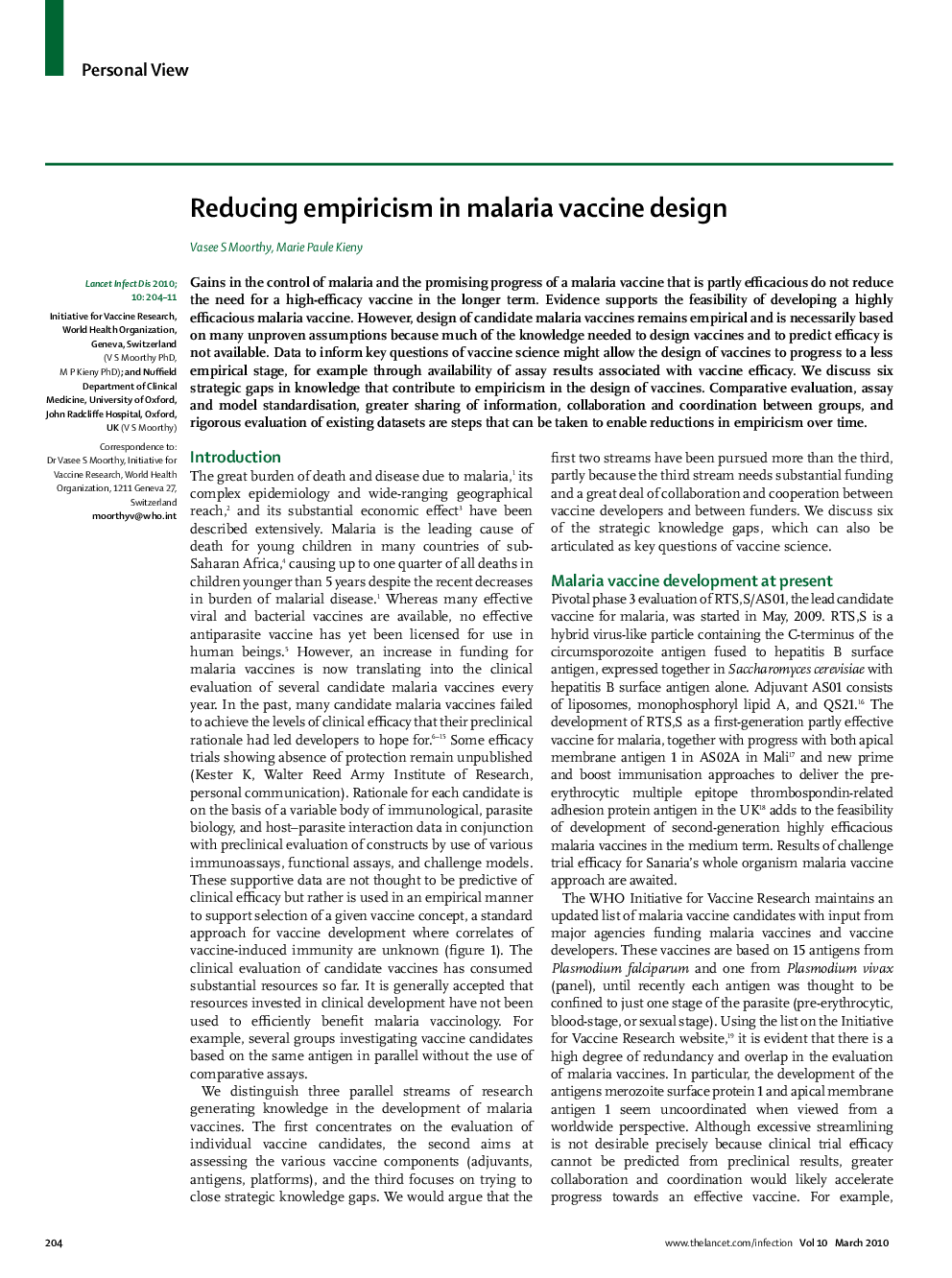| کد مقاله | کد نشریه | سال انتشار | مقاله انگلیسی | نسخه تمام متن |
|---|---|---|---|---|
| 3411302 | 1224128 | 2010 | 8 صفحه PDF | دانلود رایگان |

SummaryGains in the control of malaria and the promising progress of a malaria vaccine that is partly efficacious do not reduce the need for a high-efficacy vaccine in the longer term. Evidence supports the feasibility of developing a highly efficacious malaria vaccine. However, design of candidate malaria vaccines remains empirical and is necessarily based on many unproven assumptions because much of the knowledge needed to design vaccines and to predict efficacy is not available. Data to inform key questions of vaccine science might allow the design of vaccines to progress to a less empirical stage, for example through availability of assay results associated with vaccine efficacy. We discuss six strategic gaps in knowledge that contribute to empiricism in the design of vaccines. Comparative evaluation, assay and model standardisation, greater sharing of information, collaboration and coordination between groups, and rigorous evaluation of existing datasets are steps that can be taken to enable reductions in empiricism over time.
Journal: - Volume 10, Issue 3, March 2010, Pages 204–211